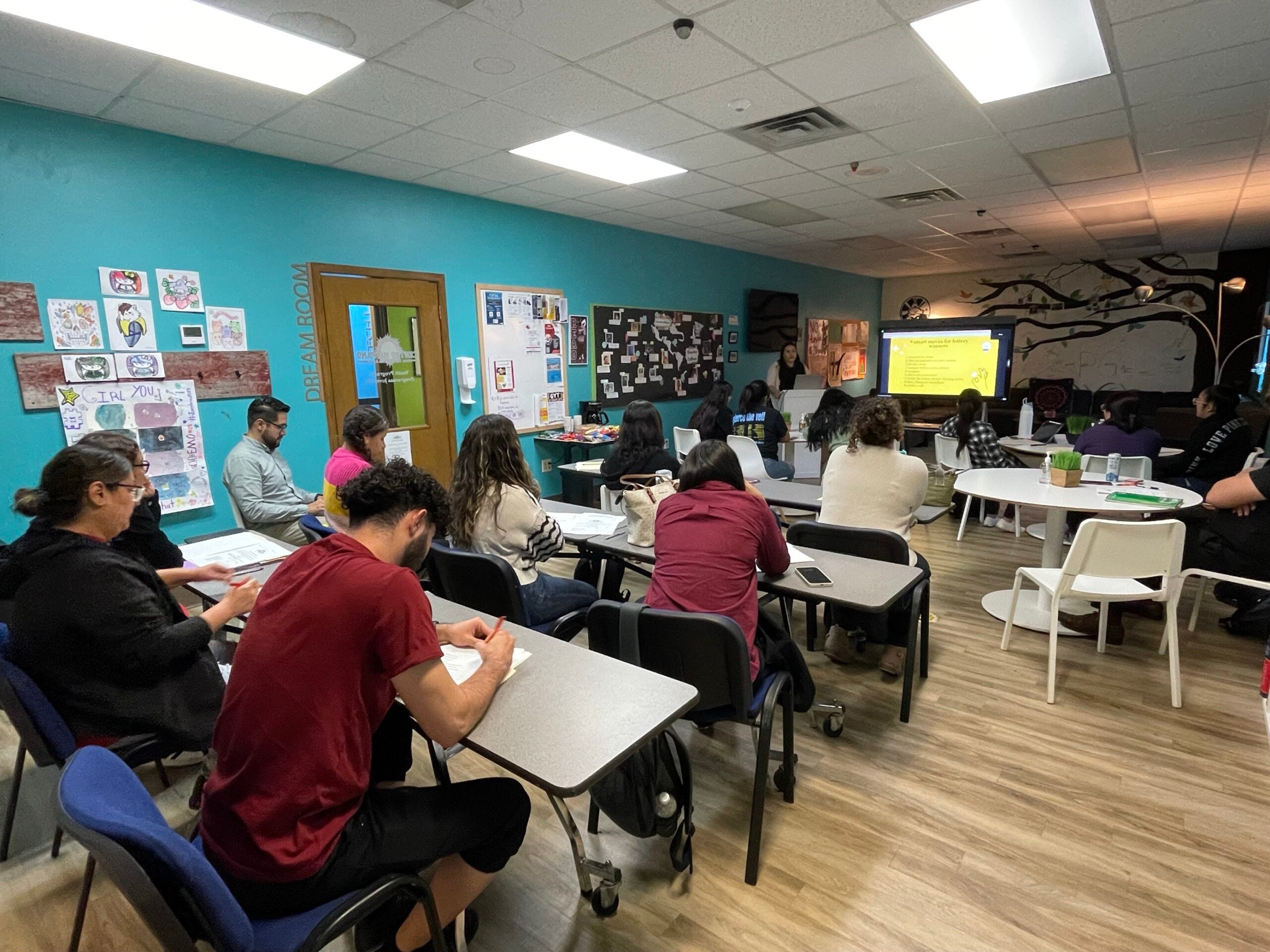In the best of worlds, people never stop improving their ability to make smart financial choices.
It’s a lifelong endeavor, with the financial decisions people face changing as they age and circumstances shift. Children must decide how to spend their allowances or money they have earned. Young adults weigh debt versus future earning potential as they decide whether to start working out of high school or to seek additional education. Throughout life, choices may involve taking out loans for major purchases like cars or real estate, and individuals should be saving for retirement throughout adulthood.
Financial capability comprises the behaviors involved in making decisions like these to achieve long-term life goals. Perhaps better known than capability is the concept of financial literacy, which encompasses the possession of specific skillsets and knowledge needed to understand and manage money for personal purposes.
Stay informed on the latest news
Sign up for WPR’s email newsletter.
As a concept, financial literacy describes the appropriate skills and knowledge people use to save and invest, make the most of earnings, protect their resources with insurance and emergency savings, and to spend wisely and borrow appropriately, per MyMoney.gov, produced by the federal Financial Literacy & Education Commission. Additionally, the 2015 Global Financial Literacy Survey produced by Standard & Poor’s adds philanthropy to that definition.
Specific financial literacy skills include being able to calculate interest, account for inflation, understand risk diversification in relation to investing, know what happens to bond prices when interest rates rise, and comprehend differences between 15-year and 30-year mortgages.
Knowing what one should do is different from actually doing it, though. That difference is why financial security scholar J. Michael Collins, a University of Wisconsin-Extension family and consumer economics specialist, prefers the concept of “capability” over “literacy.”
Once a person learns to read, the alphabet doesn’t change, but in the realm of personal finance, “you must be a lifelong learner because the market is always changing,” said Collins, who is director of the Center for Financial Security at UW-Madison. Capability really means the ability to apply financial knowledge over time.
Physical fitness is a useful metaphor, Collins explained. To be healthy, people know they have to exercise and eat right. Some people who eat poorly understand how calories and nutrients affect them, but to be physically fit, they must change their behavior.
The scope of financial capability encompasses four components, explained Peggy Olive, family financial capability outreach specialist with UW-Extension. These elements are: accurate knowledge and skills about money management, actions taken using this knowledge, access to appropriate financial products and services, and an awareness of influences on one’s attitudes and behaviors about money.
Overall, personal finance experts have shifted from emphasizing specific literacy skills to exploring the broader idea of capability and why some people are savers and others spenders, said David Mancl, director of the Office of Financial Literacy. This unit of the Wisconsin Department of Financial Institutions works to promote economic literacy and capability, focusing on personal finance and investor protection for state residents of all ages. Indeed, the presidential Advisory Council on Financial Literacy was renamed the Advisory Council on Financial Capability in 2010.
Each council conducted national surveys on financial capability. The 2012 National Financial Capability Study reinforced findings from 2009 that “financial capability varies greatly by socio-economic status and other demographics, and that many Americans struggle to make ends meet, plan ahead and make optimal financial decisions.”
The 2012 study broke out findings by state. In Wisconsin, nineteen percent of respondents said in the survey their household spent more than its income, not counting big purchases such as a car or a major investment. Twenty-four percent reported past due medical bills. A majority of households, 58 percent, lacked a rainy day fund to cover three months of expenses in case of illness, job loss or a bad economy. Wisconsin’s share of households that borrow funds from “non-bank” sources is smaller than U.S. households overall, with 24 percent of respondents tapping auto title or payday loans, getting a tax refund advance or using a pawn shop, businesses that charge high interest rates. People who live in areas unserved by banks and credit unions or who have poor credit histories often use these options.
But not many people can even be considered financially literate. In Wisconsin, 59 percent of respondents to the 2012 study could not answer more than three of five financial literacy quiz questions correctly. At the national level, a 2011 survey found that fewer than 10 percent of respondents gave correct answers on five questions about these skills. And a global survey conducted in 2014 found that one-third of respondents — and 57 percent of Americans — are financially literate.
Regardless of financial status, family can play an important role in an individual’s financial capability. Schools are another arena where children can learn about personal finance. Employees can take advantage of benefits at work, including health insurance and retirement savings. Community organizations offer information and classes. And at a consumer level, banks, credit unions, insurance companies, government agencies, non-profit organizations and individual coaches offer information for free or for a fee.
Financial Literacy Resources Abound
Numerous private and public organizations, at local, state and national levels, offer tools and programs to help people build financial literacy skills to make good decisions and to pursue ongoing capability.
“It’s important to be out front and proactive with financial education,” said David Mancl. He noted the workplace is an area where sharing this knowledge is necessary as benefits shrink and individuals must become more responsible for more of their health-care costs and management of their retirement savings.
“You have to earn the money somehow,” Mancl said. “Getting a solid education is critical.”
In Wisconsin, the state Department of Financial Institutions also offers a Financial Wellness Checklist that covers spending, insurance, debt and credit, saving and investing, retirement planning, and consumer rights. The agency also promotes Money Smart Week during the last week of April. The Governor’s Council on Financial Literacy regularly recognizes individuals and community programs that advance its campaign to educate people on the issue.
The Center for Financial Security at UW-Madison conducts research and outreach on building literacy and capability, and around the state, UW-Extension county offices hold workshops on budgeting, credit managment and family finances.
People seeking one-on-one help to change their behaviors may find a financial coach helpful. Many UW-Extension offices, including Dane County’s, offer financial coaching and counseling.
Financial coaches can help individuals inventory their finances and help determine priorities to cope with difficult situations, such as potential default on a mortgage or financial effects of a divorce. Private coaches charge fees for their services, as do financial planners and accountants, who can advise on specific issues, also for a fee, and many banks, credit unions and insurance companies offer literacy-building information for customers.
360 Degrees of Financial Literacy, an American Institute of CPAs program, features tools to help people learn about credit and debt, paying for education, home ownership, retirement planning and other topics. The institute also promotes Feed the Pig, a public service campaign that helps individuals think about their spending and saving behaviors.
This report was produced in a partnership between Wisconsin Public Radio, PBS Wisconsin and the University of Wisconsin Cooperative Extension. @ Copyright 2025, Board of Regents of the University of Wisconsin System and Wisconsin Educational Communications Board.




